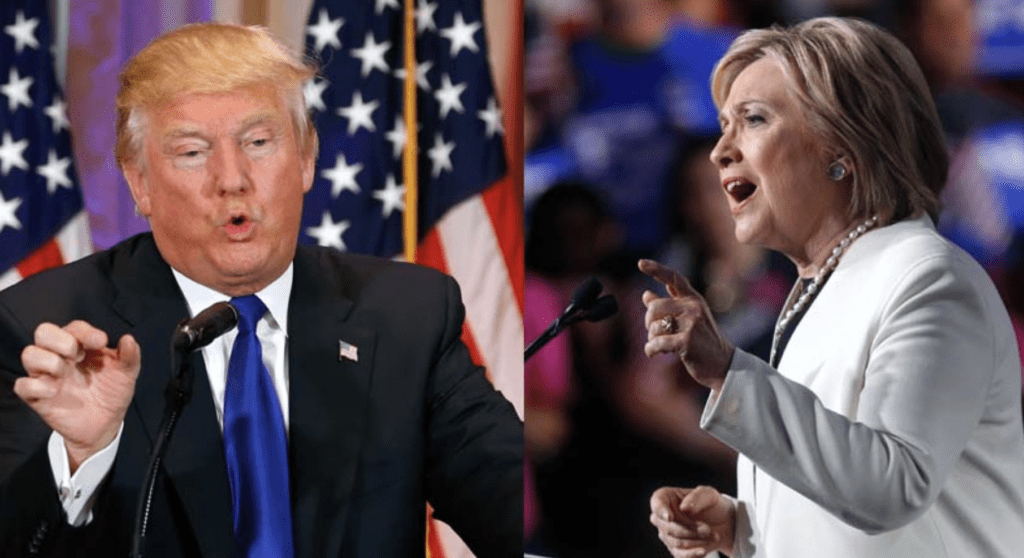SCOTUS v. America and the Lure of the Counterfactual
 AP
AP
Lisa Van Dusen
June 25, 2022
Within the dystopian melodrama of the Supreme Court of the United States v. America, in the specific case of Friday’s previously telegraphed ruling on abortion rights, there has a been a secondary narrative emerging.
The hashtag for that knock-on narrative is #ElectionsMatter, meaning that, if American voters had elected Hillary Clinton in 2016, this would never have happened.
Indeed, in December of 2015, the former first lady tweeted that, “A Republican president could nominate as many as 4 Supreme Court justices,” including a link to “why that should terrify you” with regard to abortion rights. Donald Trump later confirmed that prediction, vowing that, of course, he would pack the court to overturn Roe v. Wade. “And that’ll happen automatically, in my opinion,” Trump said during a debate, “because I am putting pro-life judges on the court.”
The reality of how Donald Trump packed the court was, in the event, not so much automatic as autocratic. It required a deployment of tactical duplicitousness on the part of certain SCOTUS nominees during the Roe v. Wade-reassurance section of their testimony before the Senate Judiciary Committee that — like so many other attacks on democracy in the post-Obama era — was unprecedented simply because nobody had ever possessed the requisite combination of power, gall and treachery to stage quite such an assault before. In this age of ends-justify-the-means politics whereby all the old-school tactics of the most Machiavellian political machines have been exponentially amplified by technology, strategic corruption and propaganda, the Supreme Court of the United States hasn’t just been packed, its Republican majority has been weaponized against its fellow citizens.
On election laws, on gun laws and on the rolling back of human rights, this transformation — both in substance and in reputational degradation value — now situates the same Supreme Court served by Felix Frankfurter, Oliver Wendell Holmes, Thurgood Marshall and Ruth Bader Ginsburg among a motley cast of corruption captured anti-democracy actors.
Still, to blame what is happening to America as a high-value target in the global war on democracy on the voters who elected Donald Trump in 2016 opens the door to 100 cascading counterfactuals.
What if Joe Biden, after seriously exploring a run in 2016 in the wake of his son Beau’s tragic death, hadn’t pulled out of the race, “clearing away” as the New York Times put it then, “one of the biggest potential obstacles to Hillary Rodham Clinton’s path to the Democratic nomination,” despite his fear that, “Mrs. Clinton could lose to the Republicans”? Given that he beat Donald Trump by 7 million votes in 2020, it seems safe to assume — let’s face it, more factually than counterfactually — that Biden would have won in 2016. In which case, the rules-based international order wouldn’t be quite as besieged, democracy in America and elsewhere would be far less imperilled, the Big Lie would still refer to hiking the Appalachian Trail and January 6th would still be best known as National Cuddle Up Day.
To blame what is happening to America as a high-value target in the global war on democracy on the voters who elected Donald Trump in 2016 opens the door to 100 cascading counterfactuals
As Maureen Dowd described in her August 2015 New York Times column What would Beau do? about the state of a Democratic field that had already been all-but cleared by Clinton, “Her strategists worry about surveys showing that voters do not trust her. But her private server is a metaphor for her own lack of trust and a guarded, suspicious mind-set that lands her in needless messes.”
Long before the post-election report of Russian interference, long before James Comey doubled down on #HerEmails, long before Trump became the Republican nominee and contrast foil whose relentless vulgarity, casual corruption, predatory misogyny and anti-presidential temperament should have made the Clintons look like the Roosevelts and would have made Biden a shoo-in, the elements of a presidential campaign so cynical, off-putting and ugly that everyone ran out of synonyms for “dumpster fire”, the ingredients that made — as FiveThirtyEight put it in May, 2016 — “Americans’ distaste for both Trump and Clinton record breaking” were already in place.
Yes, in caveat emptor terms, during the campaign, both Clinton and Trump explicitly warned voters that a Trump victory could lead to the overturning of Roe v. Wade and Trump won anyway, apparently due to contrast factors that outweighed what then seemed like the unlikely prospect of an assault on Constitutional rights coming from inside the U.S. Supreme Court.
Yes, Roe v. Wade was subsequently overturned based on the flagrant obliteration of longstanding norms of American democracy, including the integrity of the SCOTUS nomination process and the overturning of the principle articulated by Alexander Hamilton — for all you strict constructionalists out there — that it be the court’s role to “guard the Constitution and the rights of individuals from the effects of those ill humors, which the arts of designing men, or the influence of particular conjunctures, sometimes disseminate among the people themselves.”
And, in a pre-midterm context already rife with propaganda designed to rationalize a Republican victory in November that would act as a force multiplier for the sort of anti-democracy warfare now emanating regularly from the US Supreme Court and elsewhere, reminding voters that elections matter can’t be a bad thing.
But it may be more appropriate as a rallying cry for the 2022 midterms than as finger-pointing for 2016.
Policy Magazine Associate Editor Lisa Van Dusen was a senior writer at Maclean’s, Washington columnist for the Ottawa Citizen and Sun Media, international writer for Peter Jennings at ABC News and an editor at AP National in New York and UPI in Washington.
